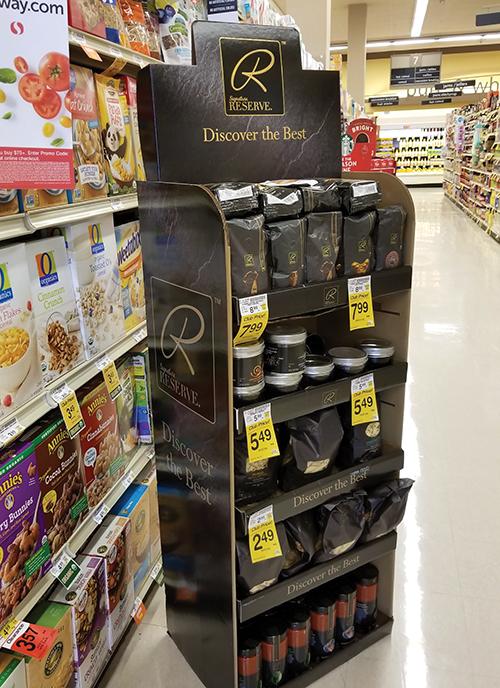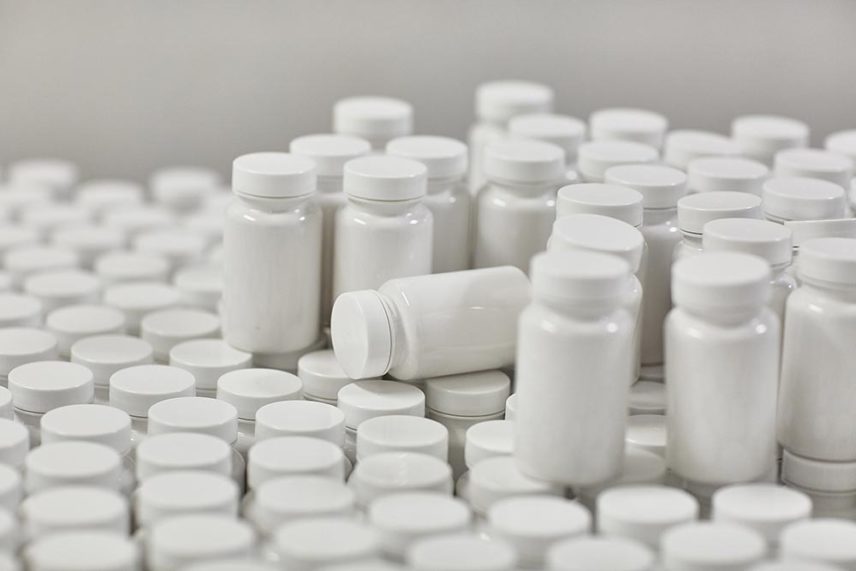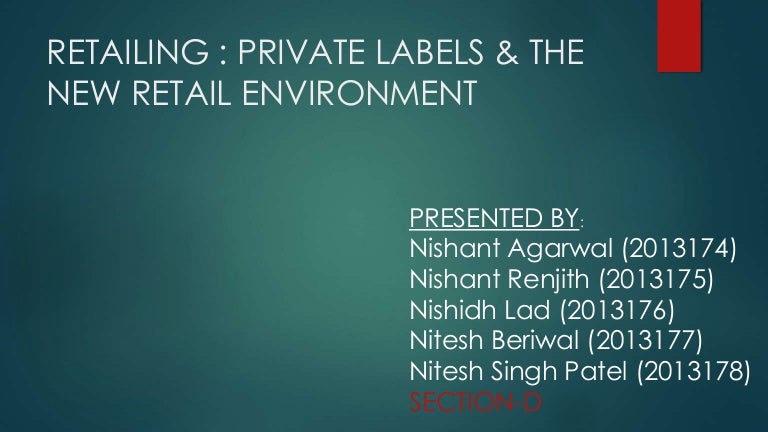39 do branded companies like private labels
26 Private Label Products That Actually Sell (2022) - Zyro Blog The overall sales of private label milk and dairy products in the US is $7.5 billion . Over 90% of Aldi's North American food sales are made through selling private label products. In 2020, 82% of US consumers surveyed said they thought that supermarket brands offered better value for money than private brands. White Label vs. Private Label: What's the Difference? When you have private labeled products, it means they are manufactured specifically for your brand. You can control every aspect and part of the product and how you market it to your targeted audience. Your business is in control. You have the ability to modify or create the product you envision. To help develop a unique brand for your business.
Why Do Leading Brand Manufacturers Supply Private Labels? Private labels have been defined as retailers' own products, sold exclusively in their own stores directly competing with established manufacturer brands (Sutton-Brady, Taylor, & Kamvounias, 2017 ...

Do branded companies like private labels
Private Labeling vs. White Labeling: What's the Difference? Retailers have the ability to modify the product to develop a unique brand. Retailers can't make changes to the product, but they can rebrand it as their own. Private label products may take longer to sell. White labeling is a faster way to enter the market. Product prices are usually higher. What is Private Label? - Influencer Marketing Hub Private labeling is a common practice among many retailers. Retail giants such as Costco and Target sell their own private label brands under the Kirkland and Archer Farms brands, respectively. It's not just the retail giants who are engaged in private labeling products either. Private Label vs. National Brands | Blacksmith Applications Private label brands exist across products and price levels. Impact: Pricing promotions that once made national brands cost competitive to private label items, may drop its product into a separate tier where the lower price intended to drive volume becomes the consumer expectation for everyday price. ♦ Challenge #2 ♦ A Race to the Bottom
Do branded companies like private labels. The Future of Private Labels: Towards a Smart Private Label Strategy According to a recent report on private labels by Information Resources, Inc. (IRI), store brands or private labels (PL) in the grocery market in the USA grew by 5.8% in 2017, four times faster than national brands (Vimari 2018).PL shares for grocery products in the USA are at a near all-time high of 18.5% in dollar share and 22.3% in unit share. Private label brands - Economics Help For private label brands, if they give very similar packing impression as better known brands, they can increase sales. Using very similar packaging is known as 'copy-cating' or mimicking. It is illegal to copy brand packaging - so private label brands have to be careful to be sufficiently differentiated and not mislead consumers. White Label vs Private Label - THAT! Company In a private label relationship, the buyer specifies the design, parts, ingredients, or offerings. In a white label relationship, while the provider or manufacturer may offer a range of customizations to fit specific needs, they specify the design, parts, ingredients, or offerings. Sound confusing, it's not. How To Source Private Label Manufacturers For Your Products At first glance, private labeling seems easy enough. But, businesses have found that it can become challenging. Private labeling has a lot of benefits from a branding perspective. But, also has multiple barriers and hurdles. These can cause serious hold-ups for entrepreneurs.
Turning private labels into powerhouse brands - McKinsey & Company The fact that private labels are frequently cheaper than national brands has helped, too, as financially strained consumers tighten their purse strings. These two advantages—high availability and low price—have made private-label products considerably more appealing to consumers during the COVID-19 pandemic. Video Insights to Impact How to Find Private Label Products and Start Selling Private labeling is one such business m odel. With private labeling, you work with a third-party manufacturer to create your own custom branded products. Private labeling is great for people and brands that already have established audiences and want to find a way to start generating passive income online via product sales. Generic no more: How private label products compete with national brands But not having to invest in as much marketing is also a reason private labels can keep their costs down and offer consumers a lower price point for a similar product. "(Brands) can afford to spend money on advertising — TV, print, etc. — which some of the smaller companies and private label manufacturers wouldn't do," said Biscotti. Private Label Definition - What is Private Label - Shopify A private label product is manufactured by a contract or third-party manufacturer and sold under a retailer's brand name. As the retailer, you specify everything about the product - what goes in it, how it's packaged, what the label looks like - and pay to have it produced and delivered to your store.
What is Private Labeling? [Definition, Pros, Cons & More] Few brands manufacture and sell products directly to consumers. Many companies sell products without their name and branding unless they're using private label products. Let's take a closer look at what private labeling is, how it works, its pros, cons, and more. What Is Private Label?: White Label vs. Private Label - BlueCart White Label vs. Private Label. Note that private labeling is different from white labeling. Private labeling is when a product line is sold exclusively through one retailer, like AmazonBasics. White labeling is the process of selling a generic product to multiple retailers, who brand and price the product for their target market. How Should National Brands Think about Private Labels? Private label performance varies widely across product categories and items. 3 For example, 65 percent of dollar sales in frozen green and wax beans accrues to the private label, whereas, in deodorants, private labels have only a 1.1 percent market share. Historically, private labels have had a greater presence in the frozen and refrigerated ... Understanding the Value of Private Label Store Brands - Reasons to Buy This is one of several reasons to make the switch to private label brands: 1. Cost Private label brands are most effective when retailers implement a low-cost strategy to capture revenues.
Private Label vs. National Brands | Blacksmith Applications Private label brands exist across products and price levels. Impact: Pricing promotions that once made national brands cost competitive to private label items, may drop its product into a separate tier where the lower price intended to drive volume becomes the consumer expectation for everyday price. ♦ Challenge #2 ♦ A Race to the Bottom
What is Private Label? - Influencer Marketing Hub Private labeling is a common practice among many retailers. Retail giants such as Costco and Target sell their own private label brands under the Kirkland and Archer Farms brands, respectively. It's not just the retail giants who are engaged in private labeling products either.
Private Labeling vs. White Labeling: What's the Difference? Retailers have the ability to modify the product to develop a unique brand. Retailers can't make changes to the product, but they can rebrand it as their own. Private label products may take longer to sell. White labeling is a faster way to enter the market. Product prices are usually higher.

















Post a Comment for "39 do branded companies like private labels"